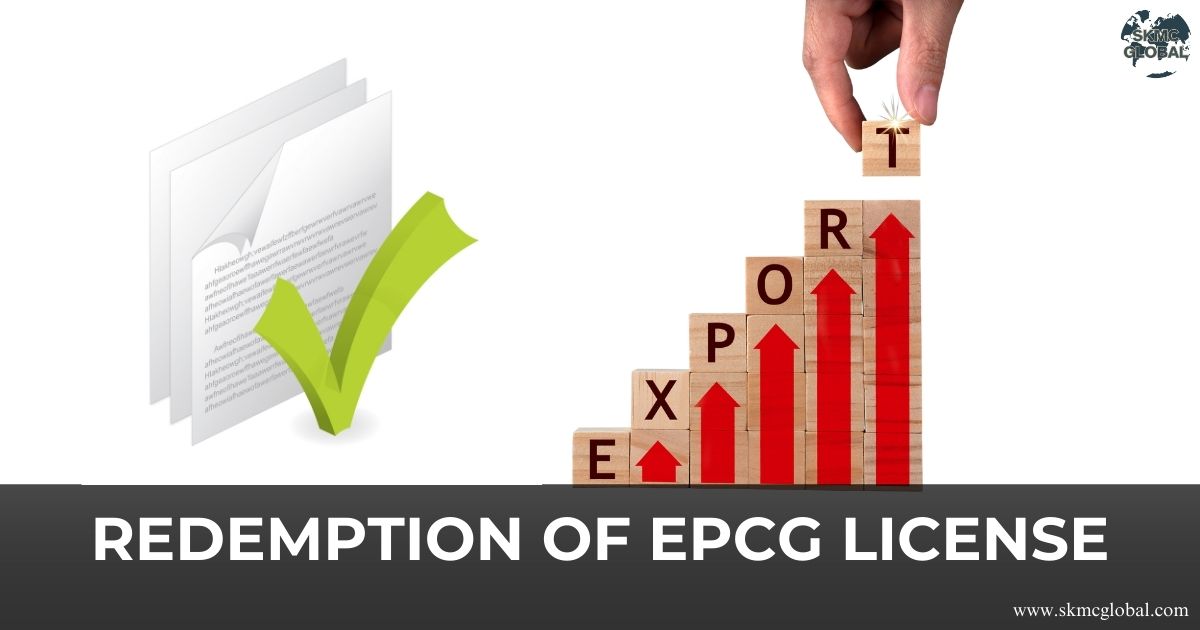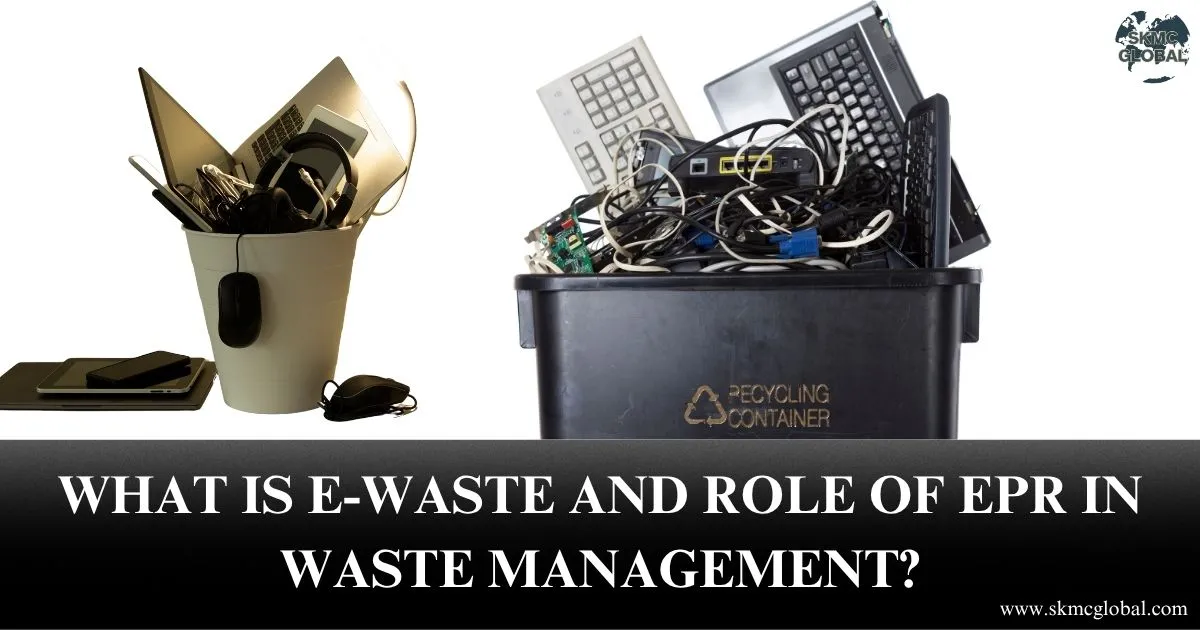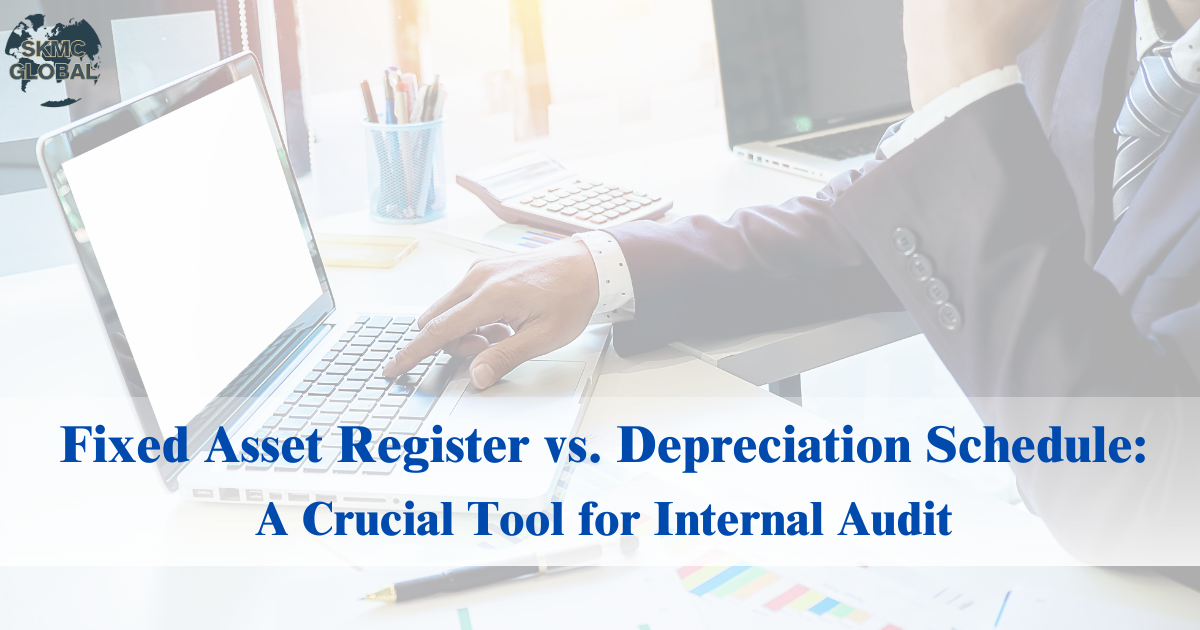
With the world getting more globalized by the day, individuals and institutions holding money in different parts of the world, the governments are left with the task of tracing revenue and wealth hidden in the offshore areas. To address this challenge, the world's tax authorities came up with two such compliance requirements: FATCA and CRS. Both these systems have transformed the process of financial institutions collecting and reporting information about account holders to make it transparent and prevent tax evasion. We will discuss FATCA and CRS reporting in detail, understand the concept of FATCA declaration, and know the major differences between them in this blog.
What is FATCA?
FATCA refers to Foreign Account Tax Compliance Act. FATCA is a legislation enacted by the U.S. in 2010 and implemented globally as of 2014. FATCA specifically targets U.S. citizens, Green Card holders, and U.S. tax residents holding financial assets overseas but not declared on their United States tax returns.
Foreign financial institutions, including banks, insurance companies, investment entities, and certain trusts, under FATCA are required to report and identify information about U.S. account holders to the United States Internal Revenue Service (IRS). In default, they shall be liable to severe penalties, including being obliged to withhold and remit a withholding tax on certain U.S. source payments of 30% to the financial institution.
In short, FATCA gives the U.S. government full visibility of foreign-held assets of its taxpayers.
What is FATCA Declaration?
A FATCA declaration is a self-certification form filled in by account holders through their bank. In it, the account holder certifies himself or herself as a U.S. person for tax purposes or otherwise. FATCA declaration is collected by banks and financial institutions at the time of opening an account for a new customer or at such time. they keep an account of existing customers.
FATCA declaration. requests. disclosure. of. the. following. information:
- Tax. residency. status
- Green Card or U.S. citizenship status
- U.S. Taxpayer Identification Number (TIN)
- Foreign account information
This self-certification is of utmost significance because it makes the financial institution FATCA reporting compliant. Failure to deliver a correct FATCA declaration may incur a fine.
What is CRS?
FATCA is comparable to the Common Reporting Standard (CRS), a global standard developed by the Organization for Economic Co-operation and Development (OECD) in 2014. While CRS is a much more comprehensive program that is used by more than 100 countries worldwide, FATCA is only necessary for the United States and its citizens.
The objective of CRS is simple: to facilitate automatic exchange of financial account information between the tax authorities of participating jurisdictions. What this means is if an individual is a resident Indian and owns a Singapore bank account, the Singapore bank would share account information with Indian tax authorities through the CRS system.
CRS requires banks to obtain information from account holders' tax residency, typically in the form of a CRS declaration or self-certification. The information is filed each year with other countries' tax authorities to prevent tax evasion.
What is CRS Declaration?
Like FATCA, CRS report is an individual or entity's self-certification that is reported to the financial institution. It helps the institution identify the tax residence of the account holder and whether the account needs to be reported under CRS or not.
The reporting process for FATCA and CRS is also consolidated in practice. The bank will not provide the customer with two separate forms where he or she would indicate his or her status under FATCA and CRS. That would be too time-consuming, and compliance on both requirements can be achieved at a single instance.
How FATCA and CRS Reporting Works?
The reporting under FATCA and CRS is founded on mutual collaboration between tax authorities and financial institutions. Let us describe the procedure:
1. Data Collection – The customers complete the FATCA declaration form and CRS declaration form and provide tax residence and identification numbers information.
2. Verification –The financial institutions employ Know Your Customer (KYC) protocols to verify the information by passport, address proof, and tax identification numbers.
3. Reporting –FATCA reporting demands that information about U.S. account holders be sent to the U.S. IRS either directly or indirectly (according to the Inter-Governmental Agreement).
CRS reporting entails reporting information to the local tax authority, who in turn will re-direct to the tax authority of the account holder's country of residence.
4.Penalties and Compliance – Failure to comply with CRS and FATCA reporting will attract both individual and institution penalties. For example, the penal consequence for non-compliance with FATCA will result in penalty of a 30% withholding tax.
Key Differences Between CRS and FATCA
The objective of FATCA and CRS is almost same and that is controlling tax evasion, but in terms of implementation and scope the two are significantly different. The differences are outlined as follows:
1.Origin and Coverage
- FATCA is a U.S. law aimed at U.S. persons worldwide.
- CRS is an OECD initiative, taken worldwide in more than 100 jurisdictions.
2.Reporting Parties
- FATCA reporting targets U.S. citizens, tax residents, and U.S.-owned entities.
- CRS reporting targets residents of all countries taking part.
3.Authority of Reporting
- FATCA reporting reports to the U.S. IRS directly or indirectly via local tax authorities.
- CRS reporting is delegated to the domestic tax authority, who makes it accessible to other jurisdictions.
4.Penalties
- FATCA has tough monetary penalties, e.g., the 30% withholding on U.S.-source payments.
- CRS has none but requests jurisdictions to pass their own compliance legislation.
5.Scope of Data
- FATCA reports only U.S. citizens.
- CRS has a much wider scope as it involves reporting on all the account holder who are tax residents in affected jurisdictions.
Why FATCA and CRS Matter to You?
For individuals:
When you invest in financial products, open an account with a bank, or even purchase insurance abroad, you're likely to be asked to submit a FATCA and CRS declaration. It's not a meaningless exercise—it ensures your information is correctly reported to tax authorities and prevents you from facing legal troubles later.
For institutions that are financial:
investment institutions and banks will have a responsibility to adhere strictly to the FATCA and CRS rules. Non-adherence will result in massive fines, loss of reputation, and lawsuits. Institutions will thus have a responsibility to put in place robust due diligence, reporting, and record-keeping systems.
For governments
FATCA and CRS reporting make the global fight against tax evasion more effective. With the transparency of the country, countries will be able to protect their tax base and be equitable in their tax system.
FATCA vs CRS: Real-World Consequences
Let say an Indian citizen who is a resident as per Income Tax has an account in Swiss Bank. In this case the Swiss bank will report the account to the Swiss tax authority in accordance with CRS, and the Swiss tax authority will report it to the Indian tax authority. Similarly, if the account owner is American, the very same Swiss bank will report to the U.S. IRS in accordance with FATCA regulations.
This cross-reporting discourages Indian and US taxpayers to hide foreign assets. This way, the FATCA CRS regimes offset each other to plug loopholes and enhance worldwide financial openness.
Conclusion
The taxation space has seen a massive transformation after implementation of FATCA and CRS reporting. The systems make it infeasible for tax payers to circumvent their liability by taking money across borders. FATCA reporting declaration procedures and CRS reporting declaration procedures, though sometimes referred to as wastage of time, are the very cog mechanisms within the hands of governments and banks in order to impose compliance and transparency.
Whereas FATCA only addresses the U.S. taxpayers, CRS has created a global network of reporting of information by more than 100 jurisdictions.
For institutions and individuals alike, it is no longer optional but compulsory to know the needs of foreign compliance tax act (FCTA) and CRS. Being FATCA and CRS compliant does not only keep the law in compliance but also results in equitable and transparent financial systems across the globe.
Recent Posts
-
 SEBI’s New Co-Investment Framework for AIFs: An ...
Jan 14,2026
SEBI’s New Co-Investment Framework for AIFs: An ...
Jan 14,2026
-
 Incorporation of Company in Saudi Arabia...
Jan 05,2026
Incorporation of Company in Saudi Arabia...
Jan 05,2026
-
 Changes in Financial Reporting as per IFRS 18...
Dec 31,2025
Changes in Financial Reporting as per IFRS 18...
Dec 31,2025
-
 Digital Personal Data Protection Act Implementatio...
Dec 30,2025
Digital Personal Data Protection Act Implementatio...
Dec 30,2025
-
 How to setup a Semiconductor Unit in Gujarat...
Dec 26,2025
How to setup a Semiconductor Unit in Gujarat...
Dec 26,2025
-
 Process of Setting Up a Gratuity Fund Trust in Ind...
Dec 18,2025
Process of Setting Up a Gratuity Fund Trust in Ind...
Dec 18,2025
-
 Corporate Insolvency Resolution Process (CIRP) und...
Dec 17,2025
Corporate Insolvency Resolution Process (CIRP) und...
Dec 17,2025
-
 Closure of a company in India...
Dec 12,2025
Closure of a company in India...
Dec 12,2025
-
 Importance of Black Money Act 2015...
Dec 11,2025
Importance of Black Money Act 2015...
Dec 11,2025
-
 What are undisclosed assets and income under Black...
Dec 08,2025
What are undisclosed assets and income under Black...
Dec 08,2025
-
 Importance of PIMS certification for Importers in ...
Dec 06,2025
Importance of PIMS certification for Importers in ...
Dec 06,2025
-
 Incorporation of Company in UAE...
Dec 03,2025
Incorporation of Company in UAE...
Dec 03,2025
-
 Legal Entity Identifier LEI - Purpose and Applicab...
Dec 01,2025
Legal Entity Identifier LEI - Purpose and Applicab...
Dec 01,2025
-
 Implementation of New Labour Codes 2025...
Nov 29,2025
Implementation of New Labour Codes 2025...
Nov 29,2025
-
 A Step-by-Step Guide to a Smooth Payroll Outsourci...
Nov 28,2025
A Step-by-Step Guide to a Smooth Payroll Outsourci...
Nov 28,2025
-
 PESO Certification in India...
Nov 26,2025
PESO Certification in India...
Nov 26,2025
-
 Family Trusts for NRIs- Managing Indian Assets fro...
Nov 24,2025
Family Trusts for NRIs- Managing Indian Assets fro...
Nov 24,2025
-
 Decoding Disclosures: Section 184 of Companies Act...
Nov 21,2025
Decoding Disclosures: Section 184 of Companies Act...
Nov 21,2025
-
 All you want to know about Recycling business in I...
Nov 20,2025
All you want to know about Recycling business in I...
Nov 20,2025
-
 What is Seed Fund Scheme and its relevance for Sta...
Nov 19,2025
What is Seed Fund Scheme and its relevance for Sta...
Nov 19,2025
-
 Incorporation of Company in Singapore...
Nov 18,2025
Incorporation of Company in Singapore...
Nov 18,2025
-
 How to upgrade your AEO T2 certification to AEO T3...
Nov 15,2025
How to upgrade your AEO T2 certification to AEO T3...
Nov 15,2025
-
 What is the relevance of APEDA Registration and it...
Nov 14,2025
What is the relevance of APEDA Registration and it...
Nov 14,2025
-
 Applicability of Indian Accounting Standards for c...
Nov 11,2025
Applicability of Indian Accounting Standards for c...
Nov 11,2025
-
 Public vs. Private Trust: key Differences in Regis...
Oct 28,2025
Public vs. Private Trust: key Differences in Regis...
Oct 28,2025
-
 Donation and Foreign Contributions to Trusts in In...
Oct 23,2025
Donation and Foreign Contributions to Trusts in In...
Oct 23,2025
-
 Redeemable Preference Shares as a Financial Tool...
Oct 22,2025
Redeemable Preference Shares as a Financial Tool...
Oct 22,2025
-
 STPI Unit and Non-STPI Unit...
Oct 16,2025
STPI Unit and Non-STPI Unit...
Oct 16,2025
-
 Country-by-Country Reporting (CbCR) and Its Evolvi...
Oct 09,2025
Country-by-Country Reporting (CbCR) and Its Evolvi...
Oct 09,2025
-
 What is Free Trade Agreement and Certificate of Or...
Oct 08,2025
What is Free Trade Agreement and Certificate of Or...
Oct 08,2025
-
 What is the relevance of status holders certificat...
Oct 06,2025
What is the relevance of status holders certificat...
Oct 06,2025
-
 Redemption of Advance Authorization under Foreign ...
Oct 04,2025
Redemption of Advance Authorization under Foreign ...
Oct 04,2025
-
 What is provisional assessment of Bill of Entries ...
Sep 29,2025
What is provisional assessment of Bill of Entries ...
Sep 29,2025
-
 Redemption of EPCG License...
Sep 26,2025
Redemption of EPCG License...
Sep 26,2025
-
 MOOWR (Manufacturing and Other Operations in Wareh...
Sep 24,2025
MOOWR (Manufacturing and Other Operations in Wareh...
Sep 24,2025
-
 Procedure to Apply SCOMET License...
Sep 22,2025
Procedure to Apply SCOMET License...
Sep 22,2025
-
 Landscape of Semiconductor Industry while Doing Bu...
Sep 18,2025
Landscape of Semiconductor Industry while Doing Bu...
Sep 18,2025
-
 The Hidden Costs of In-House Accounting v/s Outsou...
Sep 17,2025
The Hidden Costs of In-House Accounting v/s Outsou...
Sep 17,2025
-
 TDS on sale of immovable property by an nri...
Sep 10,2025
TDS on sale of immovable property by an nri...
Sep 10,2025
-
 Setting up a Project Office in India...
Sep 08,2025
Setting up a Project Office in India...
Sep 08,2025
-
 Tax Implication for Transferring NRO Funds to NRE ...
Sep 05,2025
Tax Implication for Transferring NRO Funds to NRE ...
Sep 05,2025
-
 How outsourcing CFO services helps the corporates ...
Aug 27,2025
How outsourcing CFO services helps the corporates ...
Aug 27,2025
-
 Why a Periodical Cash Flow Statement is Necessary ...
Aug 26,2025
Why a Periodical Cash Flow Statement is Necessary ...
Aug 26,2025
-
 What is FATCA and CRS reporting and its difference...
Aug 22,2025
What is FATCA and CRS reporting and its difference...
Aug 22,2025
-
 What are unclaimed TDS Credits and how to claim it...
Aug 21,2025
What are unclaimed TDS Credits and how to claim it...
Aug 21,2025
-
 Digital Taxation is reshaping Tax Nexus Between Ju...
Aug 20,2025
Digital Taxation is reshaping Tax Nexus Between Ju...
Aug 20,2025
-
 Procedure to Take PF Registration and Its Complian...
Aug 18,2025
Procedure to Take PF Registration and Its Complian...
Aug 18,2025
-
 Procedure to take PSARA License...
Aug 11,2025
Procedure to take PSARA License...
Aug 11,2025
-
 Mandatory factory license while setting up manufac...
Aug 08,2025
Mandatory factory license while setting up manufac...
Aug 08,2025
-
 Procedure for obtaining NBFC Registration in India...
Aug 04,2025
Procedure for obtaining NBFC Registration in India...
Aug 04,2025
-
 FSSAI License registration for Food Business...
Jul 14,2025
FSSAI License registration for Food Business...
Jul 14,2025
-
 How Management Information System (MIS) reporting ...
Jul 11,2025
How Management Information System (MIS) reporting ...
Jul 11,2025
-
 IFRS 9 impairment- A complete guide...
Jul 12,2025
IFRS 9 impairment- A complete guide...
Jul 12,2025
-
 Why most of the companies are shifting to hr and p...
Jul 10,2025
Why most of the companies are shifting to hr and p...
Jul 10,2025
-
 A complete guide on valuation of shares...
Jul 10,2025
A complete guide on valuation of shares...
Jul 10,2025
-
 BIS registration for foreign manufacturer...
Jul 09,2025
BIS registration for foreign manufacturer...
Jul 09,2025
-
 Understanding the Scope of the Shops and Establish...
Jul 08,2025
Understanding the Scope of the Shops and Establish...
Jul 08,2025
-
 Coso framework: Complete guide on internal control...
Jun 26,2025
Coso framework: Complete guide on internal control...
Jun 26,2025
-
 Components and Process for Conducting Internal Aud...
Jun 25,2025
Components and Process for Conducting Internal Aud...
Jun 25,2025
-
 What is ICFR and Why It is Important for Businesse...
Jun 24,2025
What is ICFR and Why It is Important for Businesse...
Jun 24,2025
-
 Understanding WPC Certification and its applicabil...
Jun 23,2025
Understanding WPC Certification and its applicabil...
Jun 23,2025
-
 Procedure to take EPR registration for battery was...
Jun 21,2025
Procedure to take EPR registration for battery was...
Jun 21,2025
-
 3PL Logistics...
Jun 19,2025
3PL Logistics...
Jun 19,2025
-
 What is E-Waste and role of EPR in Waste Managemen...
Jun 17,2025
What is E-Waste and role of EPR in Waste Managemen...
Jun 17,2025
-
 M&A Due Diligence in India: How to Spot Target Com...
Jun 16,2025
M&A Due Diligence in India: How to Spot Target Com...
Jun 16,2025
-
 BIS crs certification for electronic products...
Jun 12,2025
BIS crs certification for electronic products...
Jun 12,2025
-
 All you need to know about WPC ETA certification f...
Jun 11,2025
All you need to know about WPC ETA certification f...
Jun 11,2025
-
 What is CDSCO Registration under The Drugs & Cosme...
Jun 10,2025
What is CDSCO Registration under The Drugs & Cosme...
Jun 10,2025
-
 Procedure to Take CDSCO Registration in India: A C...
Jun 09,2025
Procedure to Take CDSCO Registration in India: A C...
Jun 09,2025
-
 All You Need to Know About AERB Registration...
Jun 07,2025
All You Need to Know About AERB Registration...
Jun 07,2025
-
 Understanding POSH (Prevention of Sexual Harassmen...
Jun 03,2025
Understanding POSH (Prevention of Sexual Harassmen...
Jun 03,2025
-
 Chartered Accountant's role in financial managemen...
May 23,2025
Chartered Accountant's role in financial managemen...
May 23,2025
-
 5 Things to keep in your mind while running payrol...
May 17,2025
5 Things to keep in your mind while running payrol...
May 17,2025
-
 Why BIS Certification is Crucial for Importers and...
May 15,2025
Why BIS Certification is Crucial for Importers and...
May 15,2025
-
 Top 7 Reasons Indian Entrepreneurs Are Switching t...
May 07,2025
Top 7 Reasons Indian Entrepreneurs Are Switching t...
May 07,2025
-
 Incorporation of Company in Japan...
Apr 24,2025
Incorporation of Company in Japan...
Apr 24,2025
-
 How to set up a Representative Office in Singapore...
Apr 14,2025
How to set up a Representative Office in Singapore...
Apr 14,2025
-
 BIS certificate for medical equipments...
Apr 09,2025
BIS certificate for medical equipments...
Apr 09,2025
-
 Fixed Asset Register v/s Depreciation Schedule: A ...
Apr 02,2025
Fixed Asset Register v/s Depreciation Schedule: A ...
Apr 02,2025
-
 Role of AI in Accounting...
Mar 26,2025
Role of AI in Accounting...
Mar 26,2025
-
 Capital Structure & its Impact on Profitability...
Feb 21,2025
Capital Structure & its Impact on Profitability...
Feb 21,2025
-
 Union Budget 2025...
Feb 01,2025
Union Budget 2025...
Feb 01,2025
-
 What is EPR in Plastic waste Management? ...
Jul 12,2022
What is EPR in Plastic waste Management? ...
Jul 12,2022
-
 Lithium-ion Battery Recycling Plant Setup in India...
May 10,2022
Lithium-ion Battery Recycling Plant Setup in India...
May 10,2022
-
 Setting up E-waste Recycling Plant Setup...
Jan 12,2022
Setting up E-waste Recycling Plant Setup...
Jan 12,2022
-
 Applicability of Labour Laws in India...
Jul 15,2021
Applicability of Labour Laws in India...
Jul 15,2021
-
 Basis to Outsource Finance and Accounting Services...
Oct 31,2021
Basis to Outsource Finance and Accounting Services...
Oct 31,2021
